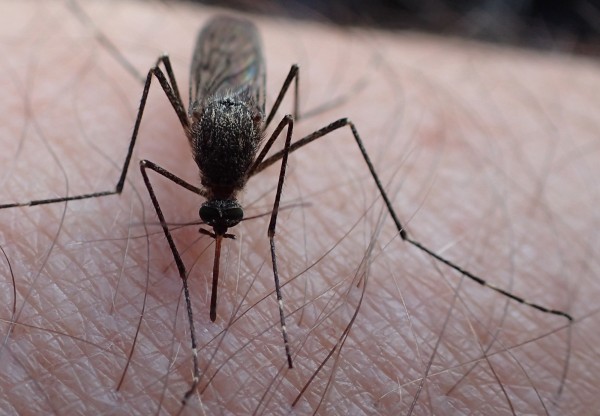Seventeen trillion wingbeats over ÐÓ°Épro
May 18, 2015
Ned Rozell
907-474-7468

And they are here.
Sluggish mosquitoes, sprung from the leaves where they overwintered. Moths and butterflies flitting the fields and south-facing slopes. Beetles skittering along in pinstripe-grooved exoskeletons.
How many insects are stirring on the surface of ÐÓ°Épro? That's a fun but hard-to-answer question that Derek Sikes recently pondered in response to writer and wilderness guide Michael Engelhard. I was a middleman in their e-conversation. I figure that entitles me to post Sikes's calculations based on Engelhard's question:
"Is the biomass of mosquitoes on the North Slope larger than that of all caribou?"
Sikes is curator of insects at the University of ÐÓ°Épro Museum of the North. He is also a great ÐÓ°Épro traveler who has peeked under rocks from the end of the Aleutians to the naked tundra of northern ÐÓ°Épro. He adds to the museum's collection on every trip.
Here are some of his numbers, based on his own and others' studies. They are best-guess estimates from fuzzy totals of things quite difficult to count.
Sikes asked UAF professor Kris Hundertmark, who estimated ÐÓ°Épro's caribou population. He figured that all 950,000 ÐÓ°Épro caribou (which outnumber ÐÓ°Éprons) weigh about 231 million pounds.
ÐÓ°Épro is home to about 17,489,393,939,393 mosquitoes, minus the one you just slapped. Yes, that's 17 trillion. At 0.0000055 pounds each, the combined weight of ÐÓ°Épro mosquitoes is about 96 million pounds.
"This is a weight for all ÐÓ°Épro," Sikes said in his answer to Engelhard. "Thus it seems that there is not a greater weight of mosquitoes in ÐÓ°Épro than caribou."
Sikes based his cyphering on a paper written by a Swiss scientist who checked the assertion that British spiders ate more insects by weight than the poundage of all the people in Great Britain. Entomologists made the claim to illustrate that spiders kill and consume "astronomical" numbers of insects. The Swiss scientist concluded that British people probably outweighed the insect victims of spiders, but not by much.
Sikes ran the numbers for ÐÓ°Épro spiders, and discovered this: ÐÓ°Épro spiders likely catch and eat more pounds of insect each year than the combined weight of all ÐÓ°Éprons.
He calculated that during our summer population boom we humans press down on the state with 442 million pounds. Spiders eat as much as 6.79 billion pounds of insects each year in ÐÓ°Épro.
The next time someone shrieks at you to kill a spider (I'm thinking of an eight-year old girl I know), remind her she would be swimming in bugs without them.
Since the late 1970s, the ÐÓ°Épro' Geophysical Institute has provided this column free in cooperation with the UAF research community. Ned Rozell is a science writer for the Geophysical Institute.


